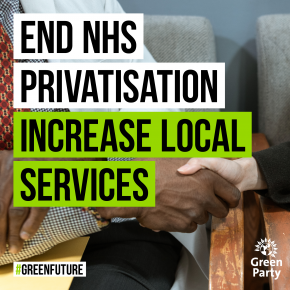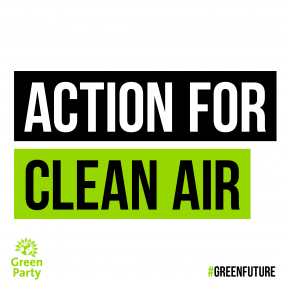The official website of the
North and West Oxfordshire
Local Party
of the
Green Party
of England and Wales
.
Serving members, supporters and citizens in the towns and villages around Cherwell and West Oxfordshire, including the following wards:
CHERWELL
- Adderbury, Bloxham and Bodicote
- Banbury Calthorpe and Easington
- Banbury Cross and Neithrop
- Banbury Grimsbury and Hightown
- Banbury Hardwick
- Banbury Ruscote
- Bicester East
- Bicester North and Caversfield
- Bicester South and Ambrosden
- Bicester West
- Cropredy, Sibfords and Wroxton
- Deddington
- Fringford and Heyfords
- Kidlington East
- Kidlington West
- Launton and Otmoor
WEST OXFORDSHIRE
Adderbury, Bloxham and
Alvescot and Filkins
- Ascott and Shipton
- Bampton and Clanfield
- Brize Norton and Shilton
- Burford
- Carterton North West
- Carterton South
- Chadlington and Churchill
- Charlbury and Finstock
- Chipping Norton
Ducklington
- Eynsham and Cassington
- Freeland and Hanborough
- Hailey, Minster Lovell and Leafield
- Kingham, Rollright and Enstone
- Milton under Wychwood
- North Leigh
- Standlake, Aston and Stanton Harcourt
- Stonesfield and Tackley
- The Bartons
- Witney Central
- Witney East
- Witney North
- Witney South
- Witney West
- Woodstock and Bladon
NOTE: Wards listed above in larger font have Green Councillors in 2025 local elections
---------------------
The search engine below will only search
the West Oxon Green Party Website.
Please note the first three or four results will be ads for other organisations. West Oxon Green Party earns no income from these ads, they are placed there by Google.,


Energy - Green Party Approach and Policies
The aim of the Green Party’s energy policy is to decarbonised the energy system based on efficient use of electricity and heat from renewable sources within the UK providing security of supply and replacing fossil fuels.
Energy polcies are central to any serious political party's approach to climate change. Without a fundamental review and restructuring of the energy usage and suppply no Governemnt can claim to be truely addressing climate change and our carbon footprint.
Producing and using energy is a major source of Green House Gas (GHG) emissions. So the principal objective has to be to decrease overall energy use to the minimum possible through improved efficiencies, changes in materials and reductions in overall consumption.
This would be more easily achieved with community ownership and local generation of power, together with fair, affordable and equal access to energy and the goods and services it provides. Transformation of the energy system away from fossil fuels will bring with it significant health benefits, improved social well-being and environmental safeguards. The positive economic effects on employment and across all sectors of the economy would also be maximised.
Changes to the energy system need to take into account population growth and demographic change, changing behaviour patterns, changes in transport and must aim to assist adaptation to changing weather and climate.
Central and local government need to collaborate to develop energy plans in consultation with local communities and businesses, setting energy and emission targets for buildings, industry and transport to encourage very low carbon energy use.
In line with the move from fossil fuels, clean electricity generation needs to be substantially increased, based primarily on renewable, very low carbon sources with offshore wind as a major source, supported by onshore wind, marine, solar photo-voltaic, biofuels, hydro power and geothermal.
Continuity of supply will be ensured by using the UK’s renewable energy sources and a variety of greatly improved storage technologies to be consistent with meeting demand in real-time.
Until fossil fuel powered generation of electricity is eliminated, carbon capture and storage (CCS) will be an important part of the infrastructure.
Changes in the organisation of energy transmission and distribution needs to be vastly accelerated to cater for increases in dispersed energy sources, demand side management and storage.
Where necessary and appropriate biofuels should be sustainably sourced from within the UK.
Hydrogen can be produced from excess renewable electricity generation by electrolysis. The Green Hydrogen produced – along with synthetic fuels derived from it – will have a role in electricity generation heating homes, industry and transport. Production of hydrogen from from fossil fuels needs to be phased out.
Summary of the Green Party’s Energy Policy
Objectives
- A complete transformation of the energy system to one based on the efficient use of energy supplied mainly by electricity from renewable sources.
- An affordable and reliable energy supply for householders, commerce and industry.
- More community control of energy use, supply and costs. The eradication of fuel poverty.
Energy demand
We aim to reduce energy consumption to a third of our current energy demand. We would get there by improving the energy performance of new and existing buildings and by re-thinking industrial processes to reduce the ‘energy intensity’ of products.
Energy system
Local councils and communities would have a key role in planning efficiency programmes and organising local energy supply and distribution.
Energy efficiency
We will aim to reduce total UK energy demand to 900TWh/year by 2030 and to 600TWh/year by 2050 – reductions of approximately 40% and 60% on 2012 final energy demand.
Councils' role
Local Councils will be given the powers and resources to develop energy plans for their areas. Councils will be required to:
- Link energy policy to local housing and transport plans.
- Encourage take-up of energy efficiency investment.
- Engage local communities in the planning process.
- Manage the phased withdrawal of natural gas for building heating.
Increased generation from renewable sources
We will mandate a target to reduce the carbon intensity of power generation to a maximum of 25gCO2 e/kWh by 2030.
Wind will provide the main source of power by 2030, followed later by wave and tidal power.
Solar thermal, photovoltaics and hydropower will be important because of their potential for local and small-scale generation.
Average capacity for renewables is planned to be 40GW by 2020, rising to 70GW by 2030.
Wind
We will accelerate the deployment of both onshore and offshore wind power generation at rates sufficient to ensure the change to a stable electricity-based system of 87GW by 2030, but stabilising thereafter.
This will require a rapid build of onshore wind to 2030 to provide an average capacity of 12GWe by 2030, and off-shore wind generation capacity will be increased to 17GWe providing a total average capacity of 29GWe (including existing and currently planned capacity).
Tidal stream and wave power
We will support the rapid commercialisation of tidal stream and wave-powered generators to ensure they are able to contribute at least 5GW each by 2030, and a combined input of at least 20GW by 2050.
Solar
Rapid deployment of solar photovoltaics will be fully supported, as a key source of decentralised generation, making full use of domestic, commercial and industrial roof space and limited deployment of ‘solar farms’.
We will target 8GW from PVs by 2030 and 10GW by 2050.
Please see separate page on West Oxfordshire Green Party's website for our thoughts on the proposed Botley West Solar Farm.
Hydro
We will urgently review the UK potential for hydropower and will support in particular medium and small-scale installations in order to provide 3GW (average) by 2030.
Biomass
We will ensure energy produced from biomass, including biogas, yields reductions in greenhouse gas emissions using sustainable wastes and domestic feedstocks for which indirect substitution emissions can be shown to be minimal.
Carbon capture and storage
We will assist in making carbon capture and storage (CCS) a reality by investing in the testing of commercial-scale CCS technology. If CCS is proven at a commercial scale, we will support deployment of the technology, on a specifically transitional basis, to existing sustainable biomass and gas power stations and existing incineration plants.
Nuclear
We will cancel the construction of new nuclear stations and nuclear power will not be eligible for government subsidy; the Green Party opposes all nuclear power generation.
Fossil fuels
We will halt the development of coal-bed methane, shale gas and similar hydrocarbon exploitation since it is not needed to meet UK energy demands, is environmentally destructive, and will lead to increasing GHG emissions.
Incinerators
Incineration of municipal, commercial and industrial waste is not required for energy generation, therefore all existing waste incineration schemes will be phased out as soon as possible.
Smart meters
We will support the installation of genuinely smart meters in all buildings linked to smart appliances that will automatically respond to fluctuations in supply and demand to minimise energy use and align periods of heavy usage with times of low cost.
Interconnectors
We will develop power interconnectors with European partners and will invest in the electricity interconnectors needed to provide international flows of renewable power for balancing fluctuating energy demand, in cooperation with countries such as Iceland (with substantial geothermal power resources), Norway (with considerable pumped storage capacity and hydropower supply) and Ireland (with substantial wind power potential).
Supply and retail of energy
We will legislate to separate large energy generators from suppliers. We will outlaw ownership of energy retail by profit-making companies that have a stake in energy production, unless the generation is wholly renewable. The price of power will continue to be set according to the wholesale market where we expect the majority of electricity to be traded.
Renewables will receive a fixed price feed-in tariff.
Energy retail will be conducted by community-owned, municipally-owned or cooperative not-for-profit regional monopolies.
We would ensure the Government purchases large-scale renewable plant in order to secure public sector energy provision. But we would expect new largescale generation plant and electricity transmission and distribution to continue to be built and owned by private companies.
Research, Development & Demonstration (RD&D)
We will support RD&D in demand reduction and efficiency techniques and materials.
We will support RD&D in renewable energy production.
Skills for transformation
We would ensure rapid development of the skills required for the transformation needed.
Regulation
We would establish an independent regulatory body with appropriate powers to oversee the implementation of demand reduction and efficiency measures in the interests of consumers.
We will urgently review the effectiveness of energy-related bodies such as Ofgem to ensure they have the appropriate powers and resources to carry out their function in relation to the rapidly evolving energy supply and distribution system envisaged in this policy.
Financing the energy transformation
We would use the revenues from carbon quotas, the carbon floor price and other energy taxes to create a revolving energy efficiency fund.
Energy taxes are estimated to raise around £260 billion between 2013-2017.
Carbon quotas
The existing level of ‘carbon tax’ paid on fossil fuels used in electricity production will be extended to all fossil fuels and to methane emissions from extracting gas and coal.
Therefore all fossil use and extraction in the UK will be exposed to carbon quotes and taxes that will increase at a pre-determined trajectory.
Homes
All new dwellings (including conversions) would be built to zero carbon standards.
We would retro-fit the 75% of existing housing stock that will remain by 2050.
Fuel poverty
We would ensure that all domestic tariffs are progressive i.e. a lower use of energy attracts a lower cost per unit than higher usage. The more you use the more the unit cost.









